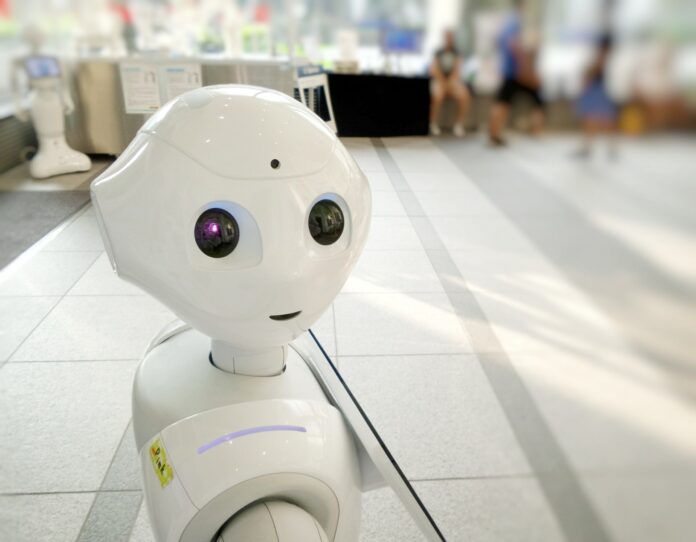The future of work is being shaped by new technology. We’re now living in a digital world, and this is changing our workplaces and processes. New technologies are allowing companies to monitor, analyze, and optimize processes. Low-cost bandwidth and numerous connected devices make this possible. Data capture is becoming more reliable and consistent.
Human-in-the-loop technology
The advent of human-in-the-loop technology has many benefits. It eliminates the fear of AI taking our jobs and brings us closer to the future of work. In addition, it allows for more flexibility and better options for workers. It embraces the technological age while still giving people the opportunity to succeed.
Another benefit of human-in-the-loop technology is that it can be used to train machine learning models. Machine learning requires a lot of labeled data, and human experts can help identify and label data pieces. Human experts can also help define and evaluate model quality, assign meaning to data, and check the model’s accuracy.
Artificial intelligence (AI) and machine learning technologies change how people work. Machines are now capable of doing repetitive tasks with greater accuracy and ease. But that does not mean people are out of work – human experts are still as valuable as ever.
As the capabilities of robots increase and the use of artificial intelligence (AI) grows, humans and machines will begin to work together to complete tasks. For example, a cashier could become a checkout assistant and help customers with their purchases, or a warehouse worker may become a robot operator, monitoring automated arms and troubleshooting them.
The future of work will be entirely different. Soon, most jobs will be done by machines, with humans carrying out some and being augmented by machines. The change will require businesses to educate employees and support them through the transition. They will need to restructure jobs to determine which parts of the job machines will perform best.
Limitations to AI’s ability to recreate human intelligence
Although AI has advanced considerably since the 1950s, human intelligence cannot be completely replicated by a machine. While AIs can learn from data, the processes involved in retrieving this information are slow and cumbersome. Furthermore, the cognitive power of humans develops with age and experience. It cannot be replicated by AIs, so as they age, their capabilities become less.
Several researchers have pointed out the limits of AI’s ability to recreate human intelligence. One of the greatest drawbacks of artificial intelligence is that it cannot learn from experience. As a result, it performs the same tasks repeatedly, leading to wear and tear. Another limitation is that it cannot change its behavior in dynamic environments. In addition, artificial intelligence is not able to bond with humans.
Another major limitation of AI is its ability to create original pieces of work. While AI can be used to help design unique objects and systems, it cannot compete with the creativity of humans. In addition, AIs cannot learn creativity. Rather, they can only mimic what they’ve been taught. Furthermore, machines can’t match the human brain, which is characterized by enormous sensitivity and a high emotional quotient.
Another problem with AI is that it is incapable of thinking critically about new situations. It means it can’t solve complex problems, such as those that arise in the real world. Also, AI cannot replicate the human capacity to evaluate context, think critically, or develop complex strategies. Its limited capabilities are also insufficient to handle ambiguous situations.
Employment opportunities
One study by the MIT-IBM Watson Lab shed light on reorganizing tasks within occupations. It analyzed 170 million job postings online from 2010 to 2017 in the U.S. and found that while AI could replace many jobs, it is still far from being at par with humans. However, AI will create more jobs if an investment is made in all sectors and workers are properly trained. 90% of the world’s largest companies are investing in AI.
As AI from ilovemyqa.com becomes more prevalent, companies will need an increasing number of AI engineers and developers. It will enable companies to scale up their businesses. AI helps companies analyze huge amounts of data and improve their ability to predict future outcomes. Additionally, it can increase customer acquisition and employee retention rates. AI will create new job opportunities in every industry as these companies grow.
AI will also enable companies to connect disparate data sources and improve collaboration within their organizations. The ability to predict future problems with the help of AI can help organizations create a more personalized customer experience, for example. And the use of AI can also make it easier to handle employee requests. For example, AI-powered chatbots can automatically handle basic questions, while advanced systems like Chorus can analyze sales calls and provide real-time tips for sales managers. Moreover, AI-improved training can help employees become more effective at their jobs.




